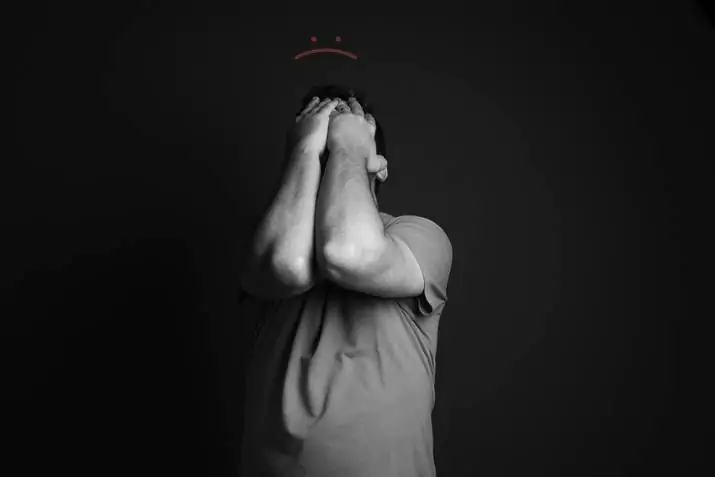Domestic violence is a dark reality that plagues the lives of countless individuals. Behind closed doors, numerous people are trapped in a cycle of abuse, enduring unimaginable pain.
Worldwide, approximately 736 million women have been subjected to intimate partner violence– physical and sexual– at least once in their lives. That’s alarming.
Violence or abuse does inflict physical wounds, but victims also sustain psychological damage. All that being said, we’ll discuss the effects of domestic abuse on the mental health of victims and share tips to seek help.
3 Adverse Effects of Domestic Violence on Mental Health
The impact of domestic abuse on mental health is far-reaching. Here, we’ll discuss some adverse effects of domestic violence on the mental health of the victim.
1. Depression
Several studies have found a positive relationship between domestic violence and depression.
The most common form of violence that impacts the mental health of women, increasing their risk of depression, is intimate partner violence. This is disclosed in the 2022 publication of the World Health Organization.
Violence also affects children involved in partnerships. These children are reported to have poor school performance compared to their peers. Rates of depression are also high among these children.
Loss of interest in activities that were previously enjoyed, increased fatigue, excessive sleeping or insomnia, and changes in appetite and weight are signs of depression.
2. Substance Abuse
Heavy drug and alcohol use is strongly linked with domestic abuse. Substance use leads to abuse, but victims of domestic violence often use drugs or alcohol to cope with the mental anguish.
Survivors or victims of intimate partner violence are more likely to drink excessive alcohol than those who haven’t experienced it. These people resort to drugs to lessen their pain of abuse.
3. Post-Traumatic Stress Disorder
Post-traumatic stress disorder, or PTSD, is a disorder that occurs in people who fail to recover after witnessing or experiencing a traumatic event or a series of incidents.
Unfortunately, PTSD is a common occurrence among victims of domestic violence. Approximately two-thirds of domestic violence survivors experience PTSD, reveals PTSD UK.
Sufferers of abuse have little control over the defense mechanisms of their brains. As a result, they develop the fight or flight response, which leaves little room for reasoning or “logic” at the moment.
Even if the victim escapes their abuser, they are unable to lead a normal life or feel safe in their environment. This usually happens because the trauma isn’t processed properly by the brain, which is why it lingers in the subconscious. This causes severe psychological issues, inhibiting their day-to-day lives.
Dealing With the Mental Health Effects of Domestic Violence: Seeking Help and Support
The mental health effects of domestic abuse are acute. However, there are several ways you can seek help, and a few of them are discussed below:
1. Reach Out to Your Local Domestic Violence Helpline
Escaping an abuser is never easy. Even the best-laid plans fail. Your attempt to leave their home can enrage them, so they might attack you. Instead of trying to execute your escape plan alone, reach out to your local domestic violence helpline.
You can easily call “211” or reach out to the National Domestic Violence Hotline. These human service organizations offer guidance and confidential support to individuals in crises. They can help you escape and provide you with resources such as housing and employment to gain independence.
2. Seek Medical Assistance
Domestic abuse can result in a range of injuries, including traumatic brain injury. Recent research suggests that traumatic brain injury can affect a person’s mental health significantly. These individuals are more likely to suffer from PTSD and depression. They might also experience increased aggression. That is why seeking medical assistance is essential for domestic abuse survivors.
A thorough screening by medical professionals can help evaluate their mental health, providing a holistic understanding of the abuse’s impact on the victim’s mental health.
Survivors of domestic abuse require care from registered nurses who are trained to provide specialized care for patients experiencing health consequences associated with violence or victimization. Forensics nursing allows nurses to offer acute care to survivors or victims while partnering with law enforcement to gather evidence for legal use.
Forensic nurses document mental health symptoms, such as depression, meticulously. Besides the nature, they record the intensity of the symptoms to provide tangible evidence of the survivor’s psychological anguish.
Cleveland State University remarks that forensic nurses offer expert testimony and provide their findings in court hearings. Thus, you should seek medical assistance as soon as you escape your abuser.
3. Speak to a Licensed Therapist
The psychological wounds inflicted by domestic abuse can diminish the quality of life and impede your ability to lead a healthy, fulfilling life. But therapy can help you rebuild your life by gaining control over it.
A licensed therapist will help you recognize the cycle of abuse, understand the underlying causes, and develop strategies to break free from it. You will learn how to assert your rights, set boundaries, and rebuild your self-esteem.
4. Obtain Legal Help
Leaving an abusive relationship is a courageous step, but your abuser can still approach you or contact you. That is why seeking legal assistance is paramount.
Legal professionals can help you obtain protection or restraining orders that would prohibit your abuser from contacting you. If there are children involved and they were abused, you need to have enough evidence to prevent the abuser from meeting them or seeking their custody.
These professionals can also help navigate the proceedings involving separation or divorce, ensuring you receive a fair share of financial resources and assets.
To sum things up, the effects of domestic violence on the mental health of survivors can be profound. However, they aren’t insurmountable. It’s hard to find the light at the end of the tunnel for victims living with their abusers, but all is not lost.
You can escape your abuser with the help of human resource organizations and seek professional help to break free from your past experiences. This will help you lead a bright and violence-free future.






